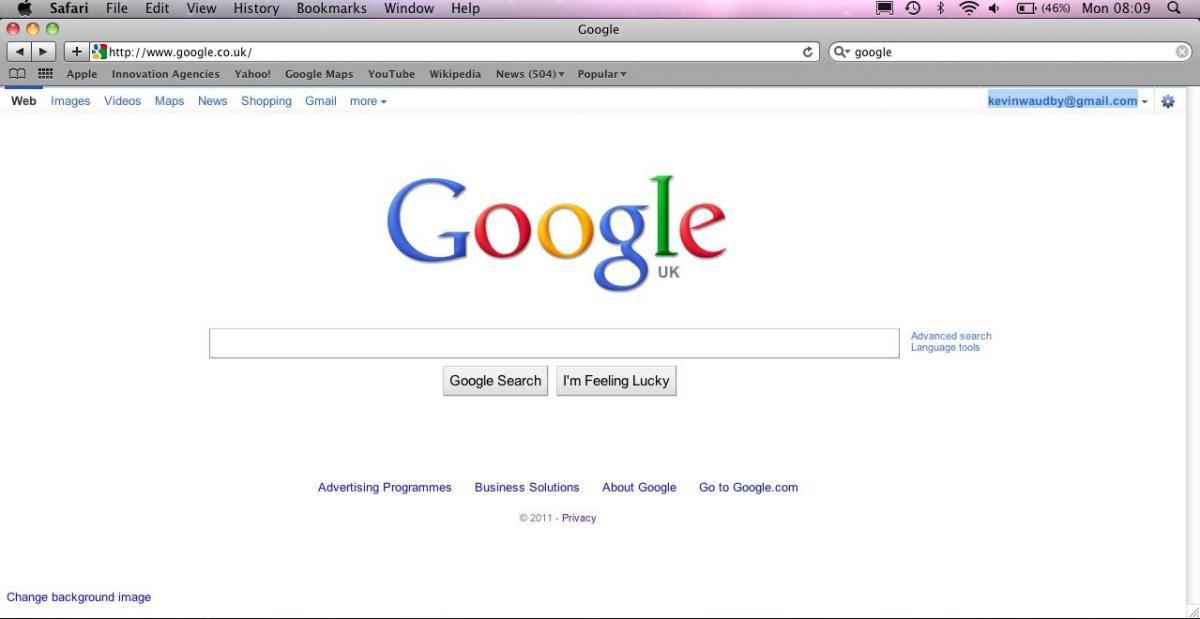Supporter insights: what are they, why bother with them and how to uncover them?
‘People want to find what they are looking for, not search for it.’
- Written by
- Kevin Waudby
- Added
- May 20, 2011
This is the consumer insight upon which one of the most successful companies of the past decade has thrived. This is the insight that propelled Google to dominate the online search space. And it is an outstanding insight. In one easy-to-understand sentence it captures a truth about what people searching on the Internet want – and, yes, it is completely obvious. Yet it focused Google on what their customers really wanted from a search engine – accuracy, speed and convenience – and that enabled Google to achieve huge commercial success.
And insights are as relevant in the charity sector as they are to commercial organisations. So what is a supporter insight? It’s a simple question that deserves a simple answer and consequently I shan’t get into the debate about what insight really is (and believe me there is a lot of debate). Instead I’ll give you a definition that I like: an insight is ‘a penetrating discovery about supporter motivations that will unlock fundraising growth’. A good insight expresses a supporter’s want, need, feeling, or belief. It is an accurate reflection of reality, i.e. it states a truth. It offers a fresh perspective, even if it’s obvious. It’s simple and can be understood by all; and, importantly, it will fuel hundreds of new ideas.
Here’s another example, again from the commercial sector, to demonstrate what I mean:

Kleenex recognised that ‘women (who do more than their fair share of grocery shopping and consequently buy the loo rolls) feel irritated that they are always left to change the toilet roll, but believe life is too short to bicker about it’. So, they found a way of fitting twice as many sheets on each toilet roll while ensuring the roll still fits on most holders – meaning that each roll lasts a lot longer. And in doing so they met a customer motivation and achieved business growth.
So why are good supporter insights so important? You don’t need me to tell you that there are a lot of charities all pretty much asking the same donors to give – it’s a competitive market out there. Great supporter insight can help differentiate your offer from that of your competitors. It can mean the difference between a supporter giving to your cause instead of someone else’s. In the commercial world, BT (British Telecom) are very clear on this point, they say: ‘We’ll develop better and deeper emotional connections with our customers than our competitors first time around – because the insight will help create a bond of recognition, it will resonate more instantly with them and make them more receptive to our brand.’
And that’s the point. Because you’ve started by helping to solve a problem your supporter has, or met a need she, or he, has expressed, your ‘ask’ is much more likely to be relevant and, consequently, successful. And she’s much more likely to give to your brand in the future because you have demonstrated that you understand her. Ultimately good insight is all about raising more money.
Taking an example from the charity sector, you may have noticed the emergence of round-up donation mechanisms such as Give Change Make Change and Pennies in which people are able to donate simply by rounding-up the cost of their retail purchases in-store or online.


Both Give Change Make Change and Pennies see micro-donations as a huge untapped fundraising resource. With research suggesting that substantially more people would give to charity if it was made easier for them to do so, these two charities have listened and provided the mechanism to do just that.
Once again, the supporter insight which underpins these mechanisms is simple, obvious and yet incredibly powerful. It is that giving is not important to most people, yet they’re willing to give – they just need giving to be simple.
Think about it, how easy do we make it for people to give? They have to fill in a direct debit mandate; perhaps run five miles (or even a marathon); hound their friends and family for sponsorship; book an appointment with their solicitor to update their will. It’s not exactly easy is it? Granted, some people are willing to put in the effort, but there’s a huge untapped audience out there for whom giving is not important – what are we doing for them? Give Change Make Change and Pennies have spotted this group of latent donors and have provided them with a solution that works for them.
And that’s another thing about good insight, it requires us to put ourselves firmly in the shoes of our supporters (or potential supporters), to shift our approach from asking what relationships do we need to establish with our supporters, to what relationships do our supporters expect us to establish with them? From how can we reach supporters most efficiently, to how do our supporters prefer to be addressed and how can we fit into their daily routines? In essence we need to have a supporter-centric perspective rather than an organisation-centric one.
The final thing about good supporter insight is that it will lead to everything else. It will shape your marketing at all levels, including proposition, channel, communication, the donation level, etc. Going back to the Google insight,‘people want to find what they are looking for, not search for it’, ever wondered why the Google home page is so simple and uncluttered?

I suspect it’s because people don’t want to spend a lot of time there. Rather they want to find what they’re searching for, so why put distractions in their way?
It might help to reflect for a moment on why some of the most enduring fundraising mechanisms of the past few decades have been so successful, child sponsorship for example.




There’s a reason so many charities do it. I suspect it’s got something to do with making a direct, personal connection between the donors and the recipients of their gifts. What do you think?
And I suspect that regular giving is one of the most successful fundraising mechanisms of the past 20-30 years because it largely appeals to donors who want to support charity but for whom it isn’t a great priority. They are happy to give but want it to be easy.
And likewise, why are some charity campaigns so powerful? If you’re in the UK you may recognise this campaign from Save the Children recently.

I suspect it’s so powerful because Save the Children have tapped into a universally held belief among people that ‘no child is born to die’. Once again, it’s simple, true, obvious and utterly compelling. And it’s the source of lots of creativity – new fundraising ideas just flow from it, such as this campaign:

And if you’re in the UK you’ll be able to watch a prime time show this summer on ITV called Born to Shine, a completely new form of telethon that will run over six weeks throughout the summer and will showcase the extraordinary talents of gifted young people as they coach 15 celebrities through a variety of challenges and performances, culminating in a big fundraiser at which the celebrities will demonstrate their new talents.I’m not going to pretend that getting to good insight is easy, it’s not. The simplicity of good insights often belies a whole heap of hard graft; collecting data, analysing it and then making the connections that will spark an emotional response. As Phil Dusenberry commented in his book One Great Insight is Worth a Thousand Good Ideas (the Penguin Group, USA, 2005): ‘An insight has the capacity to take something you know in your head and make you feel it in your gut’. Insights are powerful but hard to find. But that shouldn’t stop you trying because the benefits will far outweigh the effort you’ll put in.
And here are a few tips to get you started:
- Define your supporter segment, who are you targeting? A supporter group represents a separate and distinct segment if, for instance, their needs require a different offer, or they require different types of relationships (so, a child sponsor requires a different depth of relationship with a charity compared to a regular giver).
- Get to know them – trawl for data that you may already have, for instance, in research debriefs, through your supporter services team, in your community fundraising department, anywhere where there is an existing direct connection between you and the supporter you’re targeting
- Fill in the gaps in your knowledge – talk and listen to supporters, get to know them, what’s important to them, how does giving fit into their lives, what do they need from giving, what barriers stop them giving? And try to create a deeper understanding, keep asking ‘why?’. This is important, because sometimes supporters can’t tell you what they want or need. As Henry Ford said of his Model T car, which introduced vehicle ownership to the mass market and revolutionised transport, ‘If I’d asked my customers what they wanted, they would have told me “a faster horse”’. If he’d gone on to ask them why they needed a faster horse they may have said something like ‘because I want to get from A to B as quickly as possible’ – that’s an insight.
- Analyse what you’ve read, seen, heard – you should begin to identify recurrent themes – continue to challenge them, ask questions like so what? Why is this important? What does this mean? Why did they say that? Once you think you’ve got to the essence of the insight try to express it in a simple sentence written in language the supporter you’re targeting would use.
- Give it time – like most good ideas, an insight may start as a hunch. Sleep on it, go for a walk, talk to friends/colleagues, come back to it in a week, give yourself time to reflect and digest. Then try re-crafting the sentence you’ve written.
- And remember, don’t let your own beliefs and values get in the way of a good insight, always keep an open mind.
- As a sense check, ask yourself the following questions about the insight you’ve identified.
- Is it fresh, have you uncovered something that you didn’t know or hadn’t appreciated before?
- Does it represent an enduring truth?
- Does it start your mind popping with ideas about how your charity can meet the need it expresses?
- Does it go deeper than the observation? Does it get to the real ‘why?’
- Does it make you excited – are you feeling it in your gut?
- Is it relevant to the segment you’re targeting? Will it help differentiate your brand from your competitors?
Insights are so important to successful fundraising innovation because whatever it is you’re working on, be it a new fundraising product, a campaign, or mailing, good insight helps ensure you’re successful more of the time. By taking the time to understand your supporters, you’ll make your ask more relevant to them and that will create an emotional appreciation of your brand, increase loyalty in the future and ultimately greater fundraising success. So insights really are well worth the effort it will take to identify them.
© This article first appeared on SOFII in 2011.

















